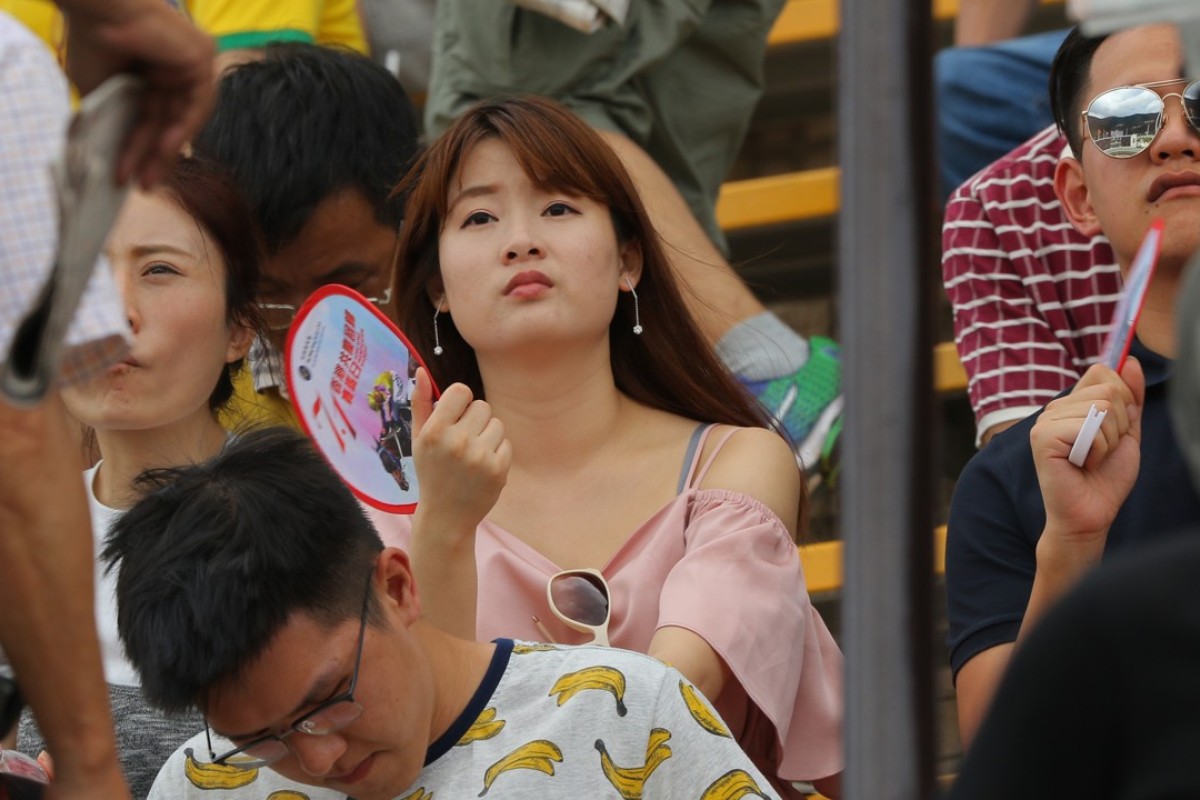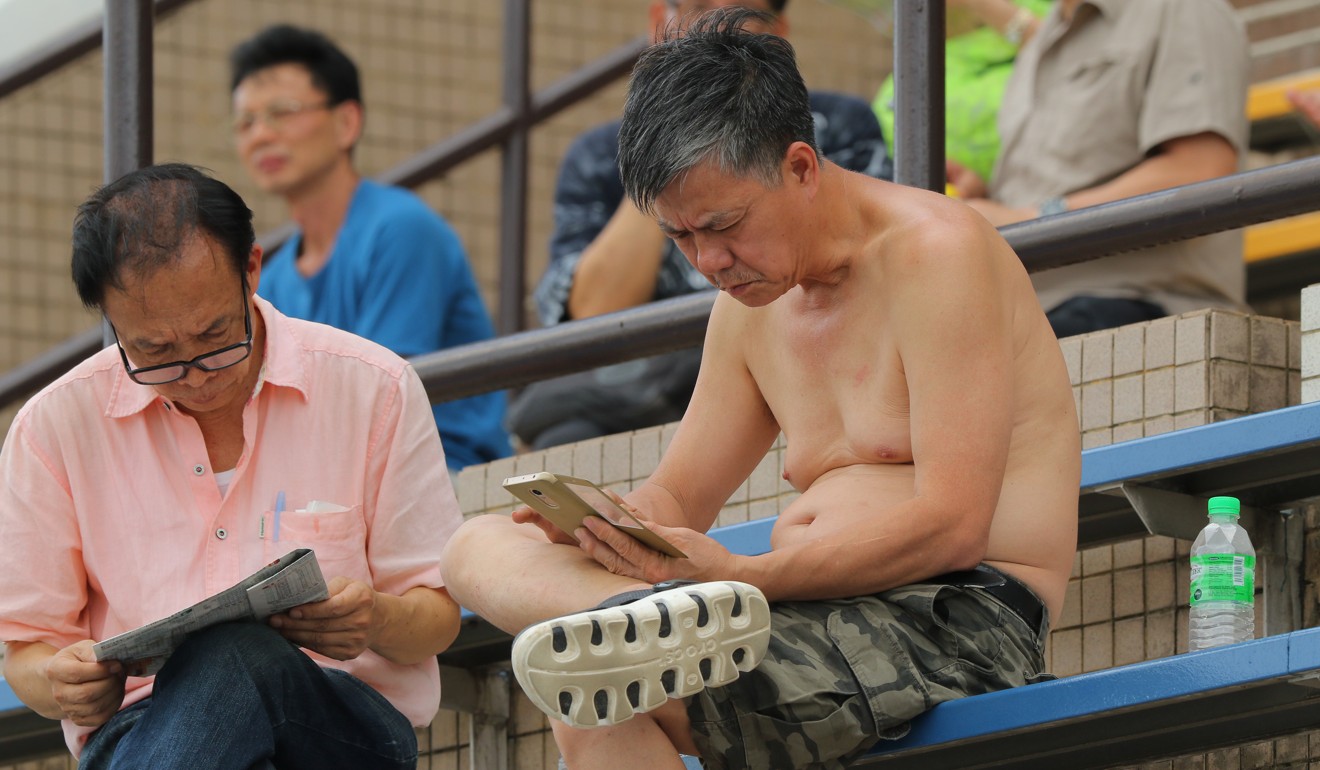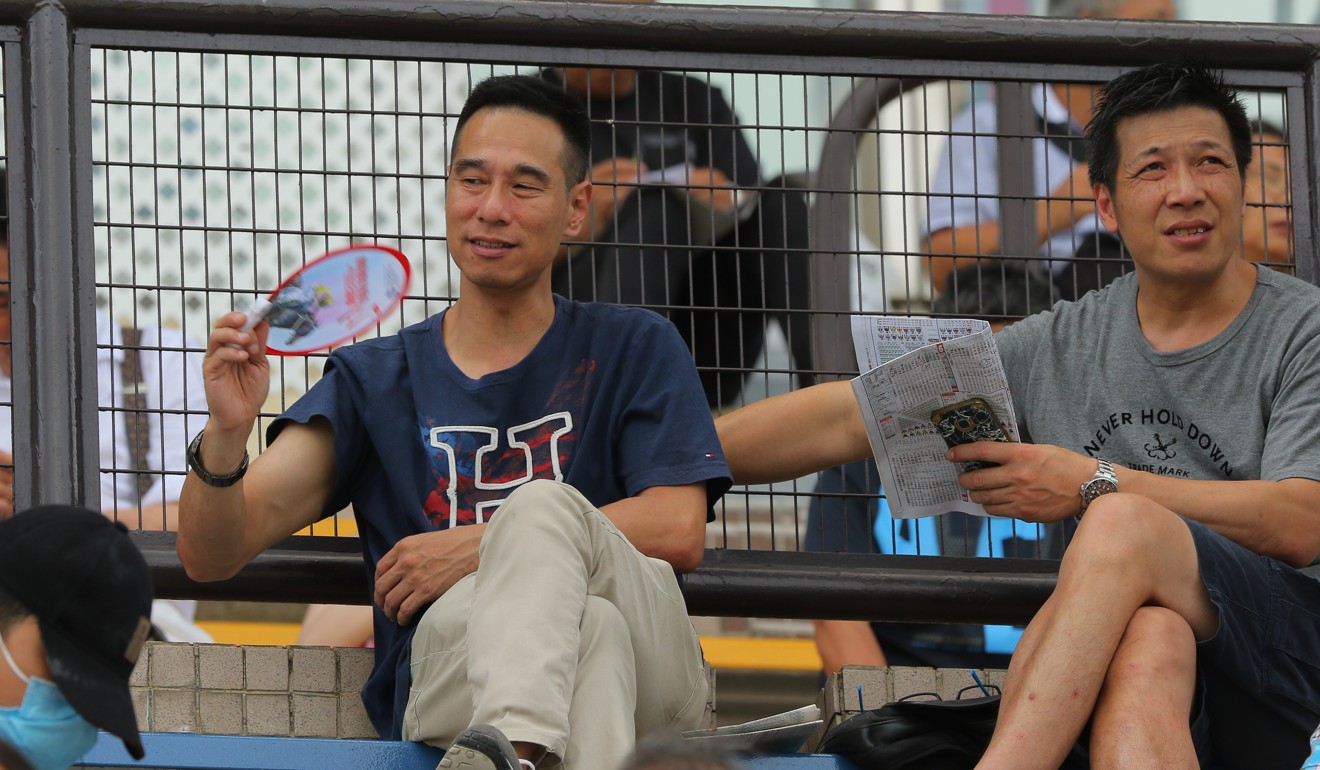A free fold up fan at the gate was a nice gesture and a random shower of rain at the end of the day provided momentary relief, but the vast majority of participants would prefer not to be racing in the sweltering heat of summer.
Customers however? Jockey Club officials claim that, for now at least, customer demands, i.e. turnover, means summer day meetings are here to stay and there won’t be a return to the twilight fixtures many are calling for.
It is an issue that basically comes down to turnover weighed up against safety and welfare of participants, both horses and humans, and boils down to the question; when is it too hot for horse racing?
Standing in the outer at 1pm with sunlight blaring, in energy sapping humidity and temperatures topping 30 degrees is a test of anybody’s resilience – let alone for horses, jockeys, barrier attendants and stable staff.
Matthew Poon loses 10-pound claim as Moreira fined a whopping HK$255,000
“It’s too hot,” has become an all-too-familiar refrain, especially for those who have experienced luxurious seasons that began in September, as they do now, but finished in the more comfortable climes of early to mid-June.
The season ran less of a relentless Sunday-Wednesday-Sunday routine throughout back then as well, and now more than ever before it’s becoming more of a marathon than a sprint.
Saturday’s Sha Tin meeting stretched into unchartered territory as the ever-extending season reached meeting 85 – already two more than ever with three still to go, including the season finale on July 16. We have an ever-shrinking off-season to go with it as well, with next season tentatively scheduled to start on September 3.
So why not, at least during September, and then when the mercury really starts to rise and the humidity hits it peak in June and July, start meetings once the sting has gone out of the air at 4.30pm and finish the 10-race card at 9.30pm?
It has been tried before, most recently on June 14, 2003, and a straw poll of trainers and jockeys was overwhelmingly in favour of a return of the twilight meetings, with a couple of caveats, the main one being “sure, we should have twilight meetings, but don’t quote me on that”.
Caspar Fownes was one trainer happy to go on record, pointing to the fact the season is five meetings longer but the horse population has basically remained the same.
Dylan Mo becomes Peter Ho’s new favourite jockey after Sha Tin double
“We want the best for our horses, we’ve come to the end of the year and we are asking so much from them,” he said. “Some days are better than others, but on those really stifling days it really is tough, and you’ve got the jockeys to think about as well.”
Of course, the trainers know where their bread is buttered so to speak, as Almond Lee put it: “It’s all about turnover, when is the turnover biggest? This is a betting jurisdiction”. While Paul O’Sullivan, tongue planted firmly in cheek quipped, “I just agree with whatever E.B. says”.
E.B., of course, is Jockey Club chief executive Winfried Engelbrecht-Bresges who, probably to the surprise of many, would prefer twilight meetings as well – it’s just that the customers don’t.
“The club tried twilight meetings and we found that customers complained that families could not have dinner together,” he said.
“It had to either be a day meeting, or a night meeting, not in between. Sunday nights don’t work for people and on Saturdays crowds are down 10 to 12 per cent and betting accounts are eight to 10 per cent less active. It’s not my preference, but I look at the numbers and I listen to what our customers tell us in surveys.”
So what about animal welfare? It’s a touchy subject that has become even more sensitive since the death of Rapper Dragon and Pakistan Star’s refusal to run last weekend.
Chad Schofield lands crucial double after a season marred by suspension
Engelbrecht-Bresges pointed out that the club put warm weather protocols in place on hot days – then there is the multi-million dollar parade ring cover, plus misting fans and shade for when horses return from a race – although jockeys have complained of keeping horses behind the gates for too long.
“We have a wet bulb measurement that takes into account heat, humidity, direct sunlight and wind – if we saw there was an issue we would cancel the races,” Engelbrecht-Bresges said. “We have world class vets here with Chris Riggs and Brian Stewart, and I fully encourage them to speak up if there was an issue – and they have yet to identify the heat as an issue.”



















